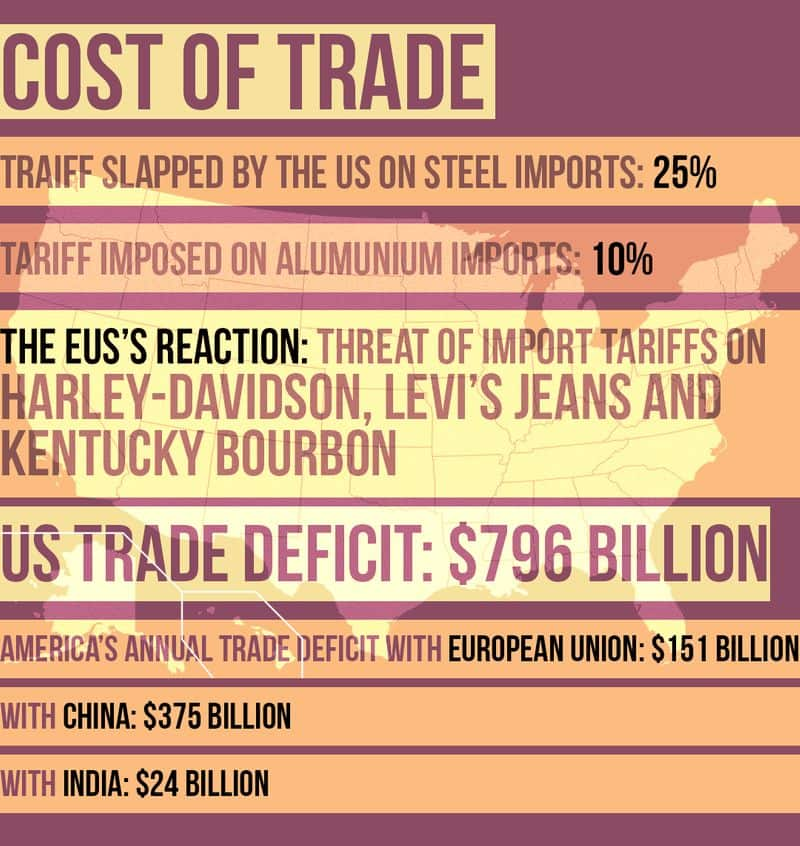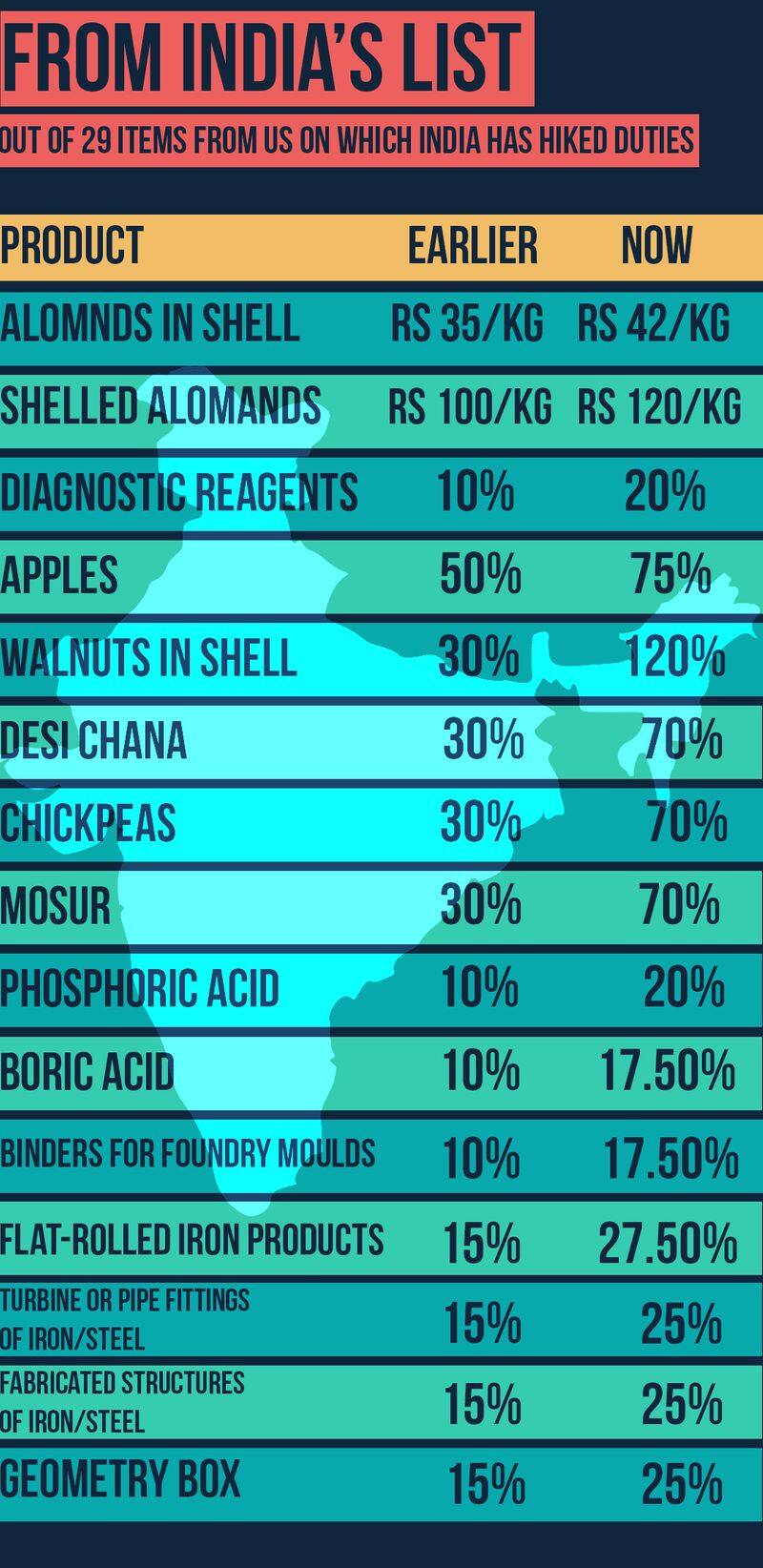After coming to power, Trump has been seeking to enter into bilateral trade deals with almost all his major trading partners. He has replaced North America Free Trade Agreement (NAFTA) with US Mexico Canada Agreement (USMCA)
WASHINGTON: Weeks after he accused India of being a "tariff king", US President Donald Trump on Tuesday warned that he would impose tariffs on countries that do not give the United States a fair trade deal.
After coming to power, Trump has been seeking to enter into bilateral trade deals with almost all his major trading partners. He has replaced North America Free Trade Agreement (NAFTA) with US Mexico Canada Agreement (USMCA).
The US has negotiated a new trade deal with South Korea and has notified the Congress of separate trade deals with Japan, Britain and the European Union. Trump has imposed hefty tariffs on imports from China and said they have hurt Beijing very badly.
In his tweet, Trump indicated that he will be using tariff as a tool to negotiate with other countries."Billions of dollars are, and will be, coming into United States coffers because of tariffs," he said.
"Great also for negotiations - if a country won't give us a fair-Trade Deal, we will institute tariffs on them. Used or not, jobs and businesses will be created. US respected again!" he said.
Billions of dollars are, and will be, coming into United States coffers because of Tariffs. Great also for negotiations - if a country won’t give us a fair Trade Deal, we will institute Tariffs on them. Used or not, jobs and businesses will be created. U.S. respected again!
— Donald J. Trump (@realDonaldTrump) October 23, 2018
Discussions between India and the US have begun on a trade deal. Earlier this month, Trump said that it had been initiated at the instance of India, only after he threatened to impose additional tariffs on its products.
On Tuesday, Trump reiterated his threat of tariff on all countries that do not give the US a fair trade deal. His tweet, however, did not mention India.
Earlier, on October 2 Trump slammed India for imposing "tremendously high tariffs" on American products and said that New Delhi wanted to have a trade deal with the US primarily to keep him happy. He described India as a "tariff king".
"India, which is the tariff king, they called us and they said, 'we want to start negotiations immediately'," Trump had said.

Recently, India too decided to propose $240 million worth of additional tariffs on a variety of imports from the US. The total tariff increase on all products in the list will amount to an estimated additional $240 million in import fees.
In March, Trump announced 25 and 10% tariffs on all foreign steel and aluminum entering the US, citing national security as one of the key reasons behind the move. While some countries were granted exemptions, India wasn’t.

In May, India proposed to raise duties by up to 100% on 20 products, such as almonds, apple and specific motorcycles imported from the US before WTO. Though the amount is marginal, the step was noticed, because it occurs alongside retaliatory tariffs on US imports by China, the European Union and, Canada and Mexico, the US’ North American Free Trade Agreement partners.
(With agency inputs)
Last Updated Oct 24, 2018, 2:27 PM IST











![Salman Khan sets stage on fire for Anant Ambani, Radhika Merchant pre-wedding festivities [WATCH] ATG](https://static-ai.asianetnews.com/images/01hr1hh8y86gvb4kbqgnyhc0w0/whatsapp-image-2024-03-03-at-12-24-37-pm_100x60xt.jpg)
![Pregnant Deepika Padukone dances with Ranveer Singh at Anant Ambani, Radhika Merchant pre-wedding bash [WATCH] ATG](https://static-ai.asianetnews.com/images/01hr1ffyd3nzqzgm6ba0k87vr8/whatsapp-image-2024-03-03-at-11-45-35-am_100x60xt.jpg)



